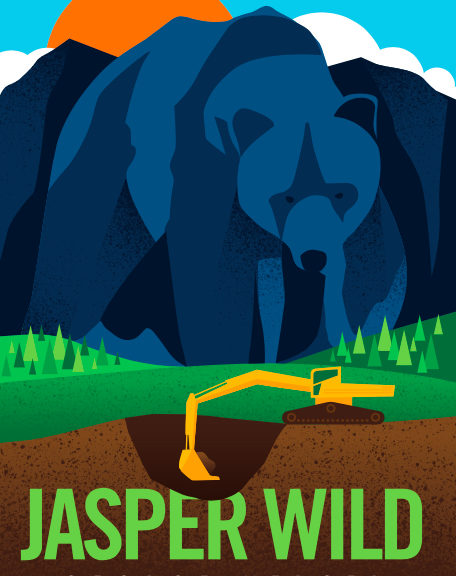Thanks to Glenn Perrett who writes for Metroland Media newspapers across Ontario for his latest review of Jasper Wild.
Monthly Archives: April 2018
Wood Buffalo and Jasper Wild Win Gold Medals at 2018 Independent Publisher Book Awards
Wood Buffalo and Jasper Wild, the second and third novels, respectively, in the Dyed In The Green fiction series about Canada’s national parks, each won Gold Medals in the 2018 Independent Publisher Book Awards.
The Independent Publisher Book Awards honour the year’s best independently published titles from North America, Europe, New Zealand and Australia.
Wood Buffalo won the top regional award for Fiction in Western Canada while Jasper Wild garnered top spot for best Book Cover Design in the Fiction category. Book covers for the series have been done by Portland, Oregon artist Dan Stiles.
Set in the largest national park in Canada and the second largest in the world, Wood Buffalo is the story of a battle to save the park’s bison herd from a proposed slaughter. Based on the real-life battle in the late 1980’s that almost saw the pro-slaughter forces win the day, Wood Buffalo is a mystery-suspense that will immerse readers in the dramatic landscapes of northern Canada.
In Jasper Wild, the series’ main characters are faced with trying to stop a politically connected foreign mining magnate from building a backcountry lodge in Jasper National Park’s iconic wilderness.
Both books follow on the heels of the series’ title book, Dyed In The Green, set in Cape Breton Highlands National Park in Nova Scotia.
This is the first fiction series about Canada’s national parks and profiles the challenges facing these iconic special places and the people trying to protect them.
The Independent Publisher Book Awards will be presented to medalists on May 29th at the Copacabana Times Square in New York City.
The Boys On The Bus
Last night, we were watching the Western Hockey League’s Victoria Royals get shellacked by the Tri-City Americans in their first quarter-finals game when the first dribbles of information showed up on my son’s cell phone, something about an accident involving the Broncos – the Swift Current Broncos I assumed, another WHL team vying for a semi-final berth in the playoffs. Sliding the phone away our attention turned back to the game, a 7-0 drubbing that had sucked the air out of the fans in the Save-On Foods Memorial Centre, reminding us that life can be one-sided sometimes.
After the game, driving my son to the basement apartment he shared with a buddy from high school and his former girlfriend, talking hockey and college and summer work, we drove without the radio on, cell phones tucked away. I dropped him off, said goodnight and reminded him to come for breakfast on Sunday.
My wife and daughter were just coming back from walking the dog when I entered the house. They mentioned an accident and we began searching the news on my laptop. Instantly we knew something really serious had taken place, not with the Swift Current Broncos, but the Humboldt Broncos of the Saskatchewan Junior Hockey League, a team of 16 to 21 year old boys and young men from the small Prairie town of 6,000.
Although details were scant, it was obvious from the silence that a tragedy was unfolding on an April night in the Prairies.
Immediately I thought of friends with a kid playing junior hockey and scanned the Humbodlt Broncos roster on their website to see if I recognized a familiar name, relieved that I didn’t, but cognizant of the fact many other families would.
Morning would bring a rude awakening.
Fifteen dead.
Fourteen more physically injured, three critically.
Untold numbers devastated by the news of injured and lost loved ones, friends, family, acquaintances, the threads of connectivity weaving their way to every part of the country, indeed the world.
The Times Of Israel was reporting on the story in the morning.
As was the New York Times and many other news services.
In countries where war and mass killings numb the population, news of a tragic accident in Canada, was making the front page.
As it was in Canada as well, but with a wholly different meaning.
A small community, in fact many small communities, towns and cities, indeed the entire province of Saskatchewan and the country itself, was in shock, and grieving.
The details are still scant, but we know enough.
Young people and road trips, whether for sport or other purposes, are a fact of life not only in Canada, but presumably around much of the world.
I’d venture to say hockey roadtrips are far and away the most common in this country, bound as we are for more than eight months most years to a game that is our game, a point of pride for most Canadians, especially the hundreds of thousands of boys and girls, young men and women, and oldtimers, who play the game, and the millions more who watch it.
It is a big part of the glue that binds us together, as teams, as communities, as a country.
It pulls us together when we win.
It keeps us together when we lose.
And when we lose big time, when a tragic accident takes away loved ones and cuts us to the bone, hockey wraps its arms around us and draws us close, reminding us that above all else, that while life and love rule, it is the things we live for and love that make it all worthwhile.
This morning, it’s hard to see the words through the veil of tears.
My heart goes out to the Humboldt Broncos, to the kids from the Prairies who make up the team, to the coaches and support staff, to all the families and friends affected by this devastating tragedy.
#HumboldtStrong

